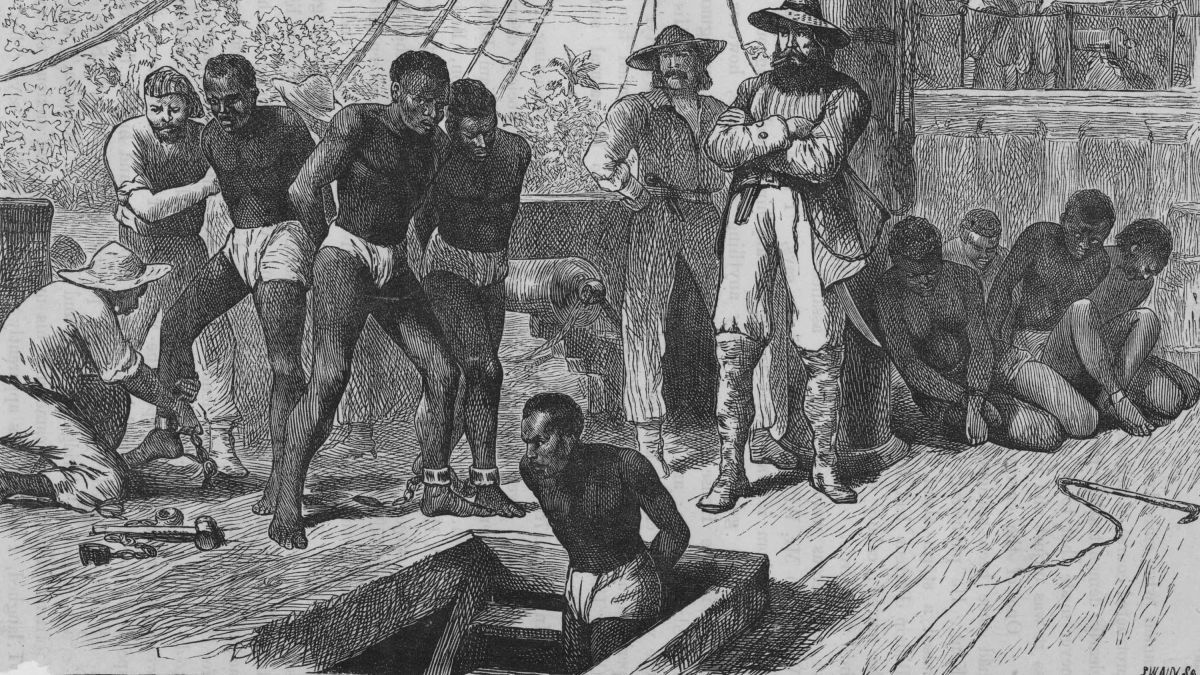Post by DrSchadenfreude on Apr 1, 2021 10:18:28 GMT -5
Good for my alma mater. I never knew that slaves had built the University Hall at Brown, or that Nicholas Brown's family engaged in the Yankee slave trade. In fact, I thought Roger Williams had banned slavery in his original British charter establishing the Rhode Island and Providence Plantations colony in the early 17th century.
Brown University Reparations Could Mean Preferential Admissions for Slave Descendants
April 1, 2021
Reparations at Brown University could result in preferential admissions and direct financial commitments for descendants of slaves associated with the school, after undergraduate students voted overwhelmingly in favor of the move.
During an annual election last week, undergraduate students at the Ivy League university voted on two referendum questions. One question asked whether the school should make "all possible efforts to identify the descendants of enslaved Africans who were entangled with and/or afflicted by the University and Brown family and their associates," while the other asked whether those descendants should receive reparations.
The questions were approved with 89 percent and 85 percent of the vote, respectively. More than 2,000 of Brown's 7,000 undergraduate students participated in the vote.
The recommendation will now be sent to the university's administrators, who will decide whether or not the offer such reparations.
"The university gets to make up its own mind when it comes to the student body... but what's important is getting the word out that the vast majority of students did approve of something. The ball is in the university's court now," Brown University's Undergraduate Council of Students (UCS) President Jason Carroll, told CNN. "It's really an expression of student sentiment."
The student referendum vote comes after the university released a report on its ties to slavery and the transatlantic slave trade more than a decade ago, according to a statement from the University Council of Students.
That report, which was commissioned in 2003 by the school's first Black president, Ruth J. Simmons, found that Brown's namesake family owned slaves, made several trips to Africa to enslave people in the West Indies and in the U.S., and advocated against the abolitionist movement. The report also found that University Hall, Brown's oldest campus building, was built by slaves.
Carroll, who recommended that the student council bring forth the new reparations vote, said he had done so after thinking about the previous report and contextualizing it with today's movement of "Black advocacy."
"We have a whole new direction as a nation, a whole new understanding of Black advocacy. I think before this past summer saying you support Black Lives Matter was honestly somewhat controversial," Carroll told CNN. "It wasn't until the murder of Mr. [George] Floyd and the protests last summer that it became something that was mainstream enough that universities like Brown would say it."
On the UCS ballot referendum, the student body also states that Brown University would not be the first to vote in favor of such reparations for descendants of enslaved individuals.
In 2019, Georgetown University similarly voted to institute a reparations fund for descendants of slaves sold by its founders. The same year, Princeton Theological Seminary announced a $27 million commitment for initiatives to recognize how the university benefited from slavery, NBC News reported.
In a statement given to Newsweek Thursday, a spokesperson for Brown did not say whether or not the university supported these specific reparations, but acknowledged its past ties to slavery.
"Confronting questions of reparations and institutional reckoning with connections to the transatlantic slave trade has a deep history at Brown," Brown spokesperson Brian Clark said.
"The University interrogated this issue as a full community from 2003 to 2006, and Brown committed to a series of actions whose impact persists in our education, research, engagement with historically underrepresented groups and ongoing work in diversity, equity and inclusion. The current work of Brown's Task Force on Anti-Black Racism will make recommendations on more Brown can do to address the legacy of slavery," he added.





 ................................
................................ ................................
................................




